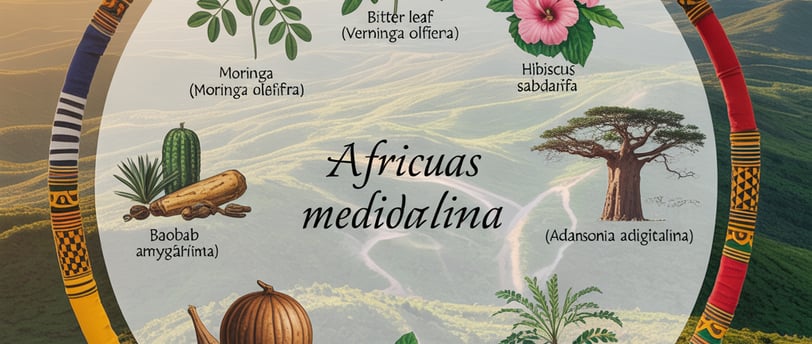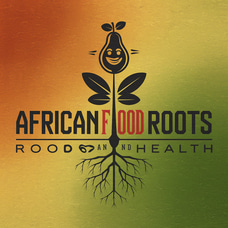🌿 Nature’s Pharmacy: 7 African Plants with Powerful Healing Properties
🌿 Nature’s Pharmacy: 7 African Plants with Powerful Healing Properties
HERBS AND MEDICINE
5/10/20253 min read


🌿 Nature’s Pharmacy: 7 African Plants with Powerful Healing Properties
For generations, African communities have relied on the healing wisdom of nature. From dense forests to open savannahs, the continent is home to an extraordinary variety of medicinal plants—each offering unique health benefits backed by both tradition and science.
While modern medicine continues to gain popularity, there’s a rising global movement to reclaim natural, holistic health—and Africa’s pharmacy of plants stands ready to serve.
Let’s explore 7 powerful African plants with healing properties you should know about.
🌱 1. Moringa (Moringa oleifera) – The Miracle Tree
Dubbed the “miracle tree,” moringa leaves, seeds, and pods are loaded with nutrients:
7x more vitamin C than oranges
15x more potassium than bananas
High in iron, calcium, and antioxidants
🌿 Uses:
Boosts immunity
Balances blood sugar
Fights inflammation
Enhances milk production in nursing mothers
🌿 How to use: Add dried moringa powder to smoothies, porridges, or make it into herbal tea.
🍋 2. Bitter Leaf (Vernonia amygdalina)
A staple in West African cooking, bitter leaf is more than just a flavor enhancer—it’s a potent detoxifier.
🌿 Uses:
Purifies the blood
Supports liver and kidney health
Regulates blood sugar and pressure
Treats malaria, fever, and digestive issues
🌿 How to use: Wash and squeeze the leaves to reduce bitterness, then cook or steep in hot water as tea.
🌺 3. Hibiscus (Hibiscus sabdariffa) – "Zobo" / "Bissap"
Known for its vibrant red petals, hibiscus is traditionally used as a refreshing drink, but it’s also a powerhouse for the heart and metabolism.
🌿 Uses:
Lowers blood pressure
Supports liver function
Rich in antioxidants
Helps reduce body fat and cholesterol
🌿 How to use: Brew dried hibiscus petals into a tea or cold beverage; sweeten with honey and add ginger or cloves.
🌳 4. Baobab (Adansonia digitata)
Africa’s "Tree of Life" has fruit pulp that’s naturally rich in vitamin C, fiber, and prebiotics. It supports both immune and digestive health.
🌿 Uses:
Strengthens gut flora
Boosts immunity
Stabilizes blood sugar
Combats fatigue
🌿 How to use: Sprinkle baobab powder over porridge, yogurt, or blend into juices and smoothies.
🥜 5. Tiger Nut (Cyperus esculentus) – "Atadwe" / "Ofio"
Despite the name, tiger nuts are tubers—not nuts—and they’re a nutritious ancestral snack.
🌿 Uses:
Rich in fiber for gut health
Natural aphrodisiac
Good source of magnesium, potassium, and iron
May improve fertility and libido
🌿 How to use: Eat raw or roasted, or blend into “tiger nut milk” for a creamy, dairy-free drink.
🌾 6. Scent Leaf (Ocimum gratissimum) – "Efirin" / "Nchuanwu"
Closely related to basil, scent leaf is used across West and East Africa for its medicinal and aromatic properties.
🌿 Uses:
Treats coughs, colds, and chest congestion
Aids digestion
Relieves menstrual pain
Antimicrobial and anti-inflammatory
🌿 How to use: Use fresh in stews, infuse into hot water for tea, or pound and inhale for respiratory relief.
🌸 7. African Wormwood (Artemisia afra) – "Lengana" / "Umhlonyane"
Native to Southern and East Africa, this bitter herb is famed for its strong aroma and antiviral, antifungal, and antibacterial properties.
🌿 Uses:
Treats colds, bronchitis, flu, and malaria
Helps with headaches and digestive pain
Strengthens the lungs and fights infection
🌿 How to use: Boil leaves for steam inhalation or tea. Use cautiously—it's potent.
💚 Embracing the Power of Indigenous Plants
These plants are more than remedies—they are part of our heritage. In many African homes, elders were the first herbalists, and knowledge was passed down through word, ritual, and healing practice.
By incorporating these natural remedies into your daily life, you:
Reconnect with ancestral wisdom
Take charge of your health naturally
Support local growers and herbalists
Preserve biodiversity and cultural knowledge
⚖️ When to Use Herbs — And When to Go Straight to the Doctor
While African herbs have supported health for centuries, it's important to honor both traditional and modern medicine. Natural remedies can be powerful, but they’re not a cure-all. Knowing when to use herbs—and when to seek professional help—is part of true wellness wisdom.
✅ Use Herbs For:
Prevention & daily wellness support (e.g., moringa for immunity, baobab for digestion)
Mild conditions like bloating, coughs, menstrual cramps, low energy, or skin issues
Stress and sleep support using calming herbs like scent leaf or African wormwood
Boosting recovery after illness (alongside medical treatment)
Managing chronic issues with the guidance of a trained herbalist or naturopath
🚨 Seek Medical Attention If:
Symptoms are severe, sudden, or worsening (e.g., high fever, severe pain, shortness of breath)
There are signs of infection that do not improve after 2–3 days
You suspect internal bleeding, serious injury, or dehydration
You are pregnant, breastfeeding, or managing conditions like diabetes or hypertension — always consult before using herbs
The person affected is a child, elderly, or has a compromised immune system
🌿✨ A Balanced Approach
Combining the wisdom of your ancestors with today’s medical knowledge empowers you to make informed, respectful choices. Let herbs enhance your health, not replace essential care.
🌍 Support Local Herbal Knowledge
Want to go deeper? Here’s how to support the movement:
Buy herbs from small-scale, organic African growers
Document your family’s herbal traditions and recipes
Start a home garden with basic herbs like moringa, hibiscus, and basil
Host or attend community wellness talks to share ancestral knowledge
✨ Final Thought
Your wellness journey doesn’t need to be expensive or imported. Sometimes, the medicine is already in your garden—or just a memory away.
Let’s honor the land, the plants, and the hands that have healed for generations.
